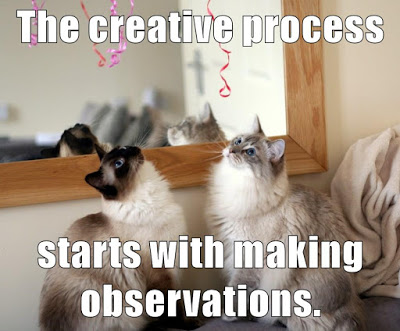Since I posted about student voices yesterday, it seems appropriate to post about faculty voices today: this morning we received by email a Canvas survey to fill out. I hope the results will be shared and shared widely so that we can learn from each other, especially in the open-ended comments. The ratings questions did not seem especially useful because they did not delve into which Canvas features we are using, much less WHY we are using those features, and what we have learned about those features this semester. Those are the kinds of questions I was hoping for, but at least there were open-ended questions at the end.
Here’s what I wrote in the questions which asked for our basic Canvas likes, dislikes, and other feedback; a lot of these are topics I’ve blogged about here, so that made it easy to write my comments on the survey:
LIKES:
I really value the ability to create open courses to share with others and to use as persistent online resources that do not come-and-go with each semester; open courses were not possible in D2L.
I very much like the hard/soft deadlines we can set for quizzes; that was also not possible in D2L.
I am glad that students can choose their own display name; also not possible in D2L.
DISLIKES:
Gradebook functionality is very poor: I need filtering, searching, sorting, flagging, and I need a simple text field to communicate with students via the gradebook and also to record a final letter grade. The only messaging possible from the Gradebook is single-assignment based, and that is a huge drawback for me; in D2L you could manually select students for messaging in the Gradebook, and you could also filter/search on multiple parameters. Overall, the Gradebook functionality is incredibly poor compared to D2L.
When you copy quiz content there is no way to update multiple instances of an item. Neither the question bank nor the quiz copy maintains a lasting connection between the copied items; you have to edit the copied items individually. This is a huge problem for me. In D2L, when you copied a question from quiz to quiz, D2L “knew” you had copied it and you only had to edit once.
I desperately need to be able to mass edit due dates when a course is copied from semester to semester; D2L offered that option, and it was great. I could reconfigure my course dates in D2L in a couple hours. In Canvas I am expecting to spend a solid 8 hours or so of click click click as I enter two new dates for every single quiz in both of my classes (because I use a student-choice driven system, I have hundreds of quizzes for which manual dates have to be entered, and that much tedious manual labor also results in so much potential for errors to occur also).
I don’t have comments on other features because the Gradebook and Quizzes are the only features I use.
OTHER FEEDBACK:
Lack of faculty voices in the Canvas rollout is a real problem: we are not taking advantage of the opportunity to learn from each other. We just get emails from a marketing team which do not actually feature what faculty and students have to say and news of what people are actually doing; I would really like to hear more about the creative and successful ways OU faculty and students are using Canvas, but that has not been happening in those emails. I can get a good sense of student perspective just by asking my students (and I do!), but for faculty perspective, I am depending on OU IT and CTE to provide a space where that sharing can happen from day to day. The OU Canvas Community would be one way to do that, but people from IT and CTE are not participating there, not even the Canvas Fellows; without leadership in that regard, the faculty are just going to be working in isolation, as was the case with D2L.
As one way to promote sharing of faculty voices, I hope very much that the results of this survey will be shared in time for people to learn from others. Finding out what other faculty see as most beneficial about Canvas would be extremely useful to know!
My hope is that as people look at their use of Canvas (and at the way other people are using it), more creative uses will emerge.
The creative process starts with making observations.
Crossposted at OU Canvas Community.
